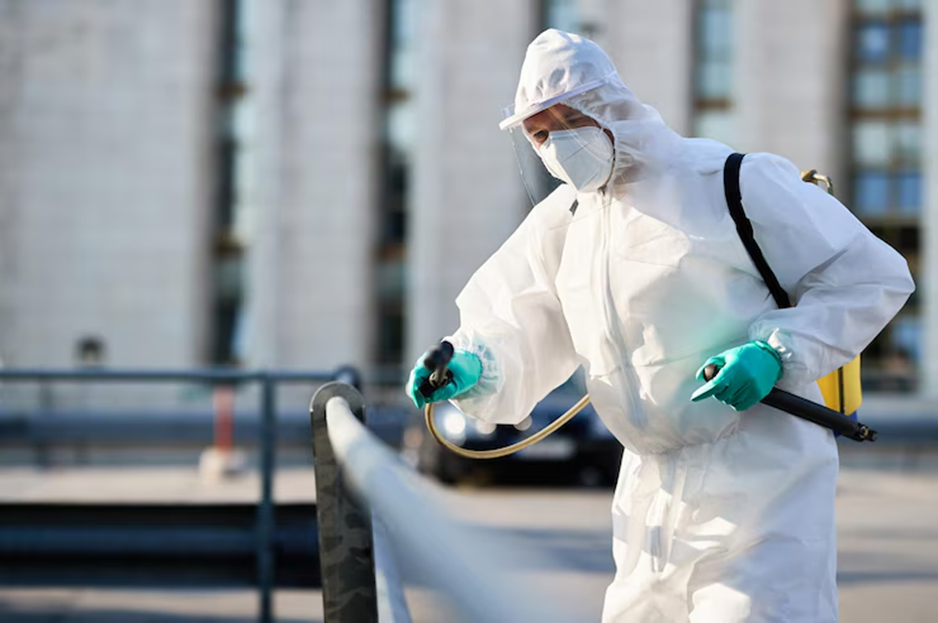Why Regular Pest Control Is Essential for Property Managers
- Staff Desk
- May 31
- 5 min read
Updated: Oct 4
TL;DR - Pest Control Is Essential for Property Managers
Protects Property Value
Pests like termites, rodents, and carpenter ants silently damage wood, wiring, and plumbing.
Regular inspections and treatments prevent costly repairs and preserve building integrity.
A pest-free property appears well-managed, increasing market value and attracting tenants or buyers.
Local pest professionals provide targeted, effective solutions.
Maintains Tenant Satisfaction & Retention
Tenants expect clean, safe living or working spaces.
Preventing infestations reduces complaints, negative reviews, and costly turnovers.
Satisfied tenants are more likely to renew leases and recommend the property.
Prevents Health Hazards
Many pests spread allergens, bacteria, and diseases (e.g., asthma from cockroaches, salmonella from rodents).
Regular pest control fosters a healthier, safer environment.
It also reduces liability risks for property managers.
Ensures Compliance
Many local/state health codes mandate pest-free conditions in rental and commercial properties.
Regular treatments help avoid fines, legal issues, and forced closures.
Saves Money Long-Term
Preventive pest control is cheaper than repairing structural damage or handling infestations.
Scheduled treatments keep costs predictable and protect revenue streams.

Property management involves numerous tasks, but neglecting pest control can lead to higher costs in the long run. It could be frustrating for tenants if cockroaches infest the home or even worse if termites are eating away at your investment.
Pest control done at the right time helps avoid more than unpleasant surprises; it also helps defend your property, reputation, and money. Not only do pests harm buildings, but they also convince tenants to leave, make maintenance more expensive, and sometimes result in fines.
Regular pest management ensures your property runs smoothly and keeps tenants satisfied. Let’s discuss why including pest control in your maintenance plan is one of the best things you can do.
1. Protects Property Value
As with any property manager, you know that your property is one of your most treasured assets. Regular pest control helps in preserving that investment.
Termites, rodents, carpenter ants, and other pests can ‘silently’ wreak havoc on structures made of wood, insulation, and even wiring and plumbing. These problems can cause damage over time to the integrity of the building, which is likely to lead to expensive repairs or devaluation.
By routine scheduling of pest inspections and extermination, you are able to prevent such problems from worsening. It saves you from negative impressions that might scare off prospective buyers or tenants.
Eliminating pest problems clearly shows that the property is professionally cared for, safe, and well-managed. But before you hire a pest control service, remember that since they are familiar with the pests in your area, local pest professionals will offer better, more precise solutions than out-of-state providers.
For instance, if your property is located in Oklahoma, it’s smart to work with local Oklahoma exterminators to get accurate, targeted solutions. Spending on pest control services pays off in the long term as the condition of the building is safeguarded while increasing the market value of the building.
2. Maintains Tenant Satisfaction and Retention

Your tenants expect a clean, secure, and conducive living or working space – and a pest problem can quickly reverse that. When you undertake regular pest control, it demonstrates to your tenants that their welfare is valued.
This reduces the chances of complaints, maintenance requests, or negative reviews by preventing infestations before they start. Tenants feeling confident about a well-maintained, pest-free space are more likely to renew leases and recommend the property to others.
Maintaining good tenants not only stabilizes income but also minimizes turnover costs such as cleaning, marketing, and vacancy downtime. Overall, pest control strengthens your standing as a professional property manager while fostering healthy relationships with tenants.
3. Prevents Health Hazards
As a property manager, you have the responsibility of ensuring the environment provided for your tenants is safe. Pest control is instrumental in maintaining a hygienic and safe environment for your tenants.
Numerous pests, as well as insects, carry allergens, viruses and bacteria that would significantly affect the health of your tenants. For instance, allergies and asthma can be triggered by cockroaches, specifically in children.
Other pests, such as rodents, mosquitoes, and ticks, can transmit harmful diseases like salmonella, hantavirus, West Nile, and Lyme disease. Regular pest control services help reduce these health threats, enabling a safer working and living environment.
It is not only cost-effective for the tenant, but it also reduces the liability posed on you as the property manager. By taking active measures aimed at reducing health hazards, trust is also built with the tenants, showing that there is a concern for their well-being, which will greatly impact tenant satisfaction and retention.
4. Ensures Compliance with Health and Safety Regulations
When you’re responsible for managing a property, you’re also expected to stay on top of various health and safety codes—and pest control is a key part of that responsibility. Many local and state regulations require properties, especially multi-family residences or commercial buildings, to maintain strict hygiene standards.
Failing to manage pests can result in code violations, legal penalties, or even forced closures. Regular pest control enables you to stay compliant with these laws and shows that you’re proactive about meeting safety standards.
Inspections and documentation from a licensed pest control service can also serve as proof of due diligence during audits or tenant disputes. Compliance isn’t just a legal obligation—it’s part of building trust with your tenants and ensuring long-term success for your property.
5. Saves Money in the Long Run

You might think of pest control as an added expense, but in reality, it’s a smart investment that saves you money over time. When you wait until an infestation becomes visible, the damage is often already done—and costly.
Structural repairs, emergency extermination services, and tenant relocations can quickly drain your budget. On top of that, dealing with tenant dissatisfaction or legal claims can lead to additional expenses and headaches.
Regular pest control helps you catch and address issues early before they escalate into major problems. Moreover, scheduled treatments are more affordable and predictable, allowing you to plan your budget with fewer surprises.
By preventing infestations, you also avoid damage to your property and protect your revenue stream. In short, staying ahead with pest control not only protects your property—it also protects your bottom line.
Conclusion : Regular Pest Control
As a property manager, you have a lot on your plate—but pest control shouldn’t be something you overlook.
Regular pest control shows tenants you care, keeps you compliant with regulations and helps maintain the value of your investment. It’s a small step that makes a big impact.
When you make pest prevention a priority, you’re building a cleaner, safer, and more reliable environment that tenants trust—and that’s good business for you.



Comments